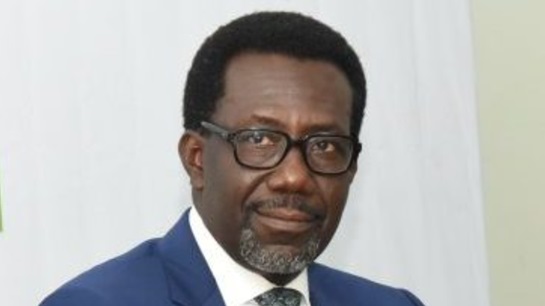A former deputy governor of the Central Bank of Nigeria (CBN), Kingsley Moghalu, has described the tenure of ex-CBN governor Godwin Emefiele as “disastrously incompetent,” saying he was a political puppet rather than an independent central banker.
In a post on his X account yesterday, Moghalu stated that Emefiele’s leadership contributed heavily to Nigeria’s current economic challenges, noting that the former governor was more interested in pleasing his political masters than maintaining the independence of the apex bank.
“While Nigeria’s CBN has broadly performed well under various governors, including the current one, it had disastrously incompetent leadership under Godwin Emefiele, which contributed heavily to Nigeria’s economic woes,” Moghalu wrote.
“Why? Because Emefiele was more of a political poodle than a real central banker. The notion of central bank independence was utterly foreign to him,” he added. The former deputy governor accused Emefiele of complete subservience to former President Muhammadu Buhari.
“All the late Muhammadu Buhari’s presidency had to say was ‘jump’ and he would ask: ‘How high?'” Moghalu dramatised.
Drawing on Chinua Achebe’s classic novel, ‘Things Fall Apart’, Moghalu said Emefiele’s ultimate downfall came when he attempted to transition from the CBN to the presidency without resigning from public service.
“At the end, like Nza the little bird in Chinua Achebe’s ‘Things Fall Apart’, he decided to challenge his ‘chi’ (deity) to a wrestling match by seeking to move from the central bank into Aso Rock as President without resigning from a public service post, and ended up where he ended up,” he said.
Emefiele was suspended by President Bola Tinubu in June 2023, shortly after the new administration took office. He was subsequently arrested by the Department of State Services and has faced multiple charges, including alleged abuse of office, money laundering and financial impropriety.
Moghalu’s comments came as part of a broader analysis of economic management in Africa, where he observed that central banks generally outperform finance ministries due to their statutory independence from political interference.
However, he noted that independence means little when central bank governors choose to become tools of political leaders, as in the case of Emefiele.
The political economist, who served in the CBN from 2009 to 2014, contrasted Emefiele’s performance with that of former finance minister Ngozi Okonjo-Iweala, whom he described as having performed “superlatively” due to her professional competence and personal gravitas.
According to Moghalu, Okonjo-Iweala’s pedigree and experience made it difficult for politicians to dominate her, unlike Emefiele, who willingly surrendered the CBN’s independence.
He argued that effective economic management requires both a strong, independent central bank and an influential finance ministry to restrain politicians’ appetite for excessive borrowing and profligate spending.
“Politicians in Africa tend to view central bank independence with great suspicion and unease,” Moghalu observed, noting that many African leaders prefer institutions under their direct control.






